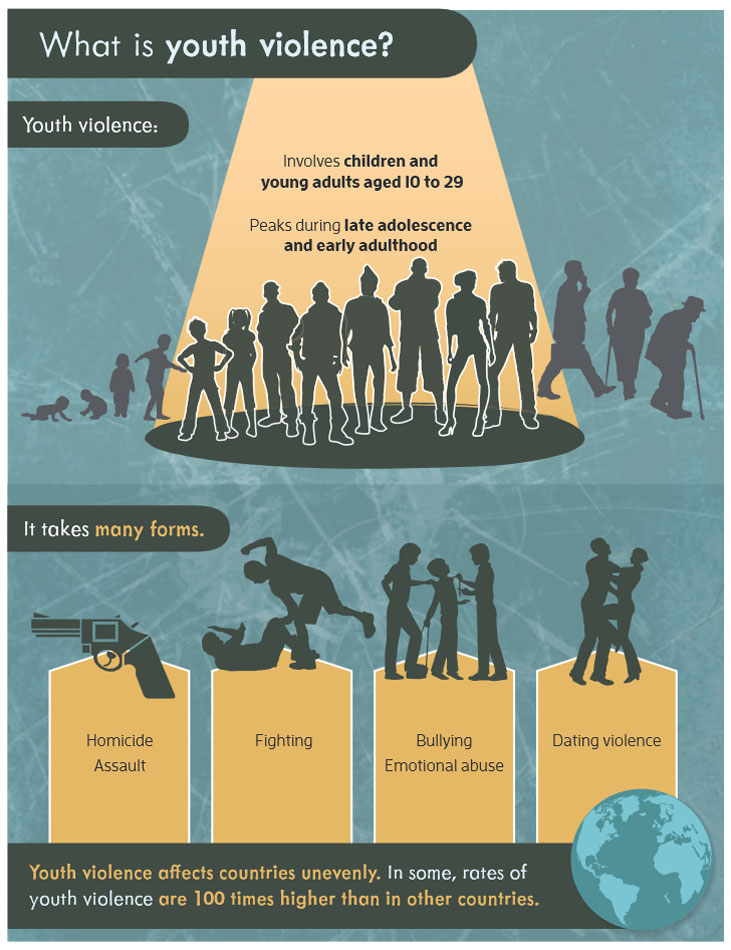27 October 2015 – While youth violence is not a simple problem with easy solutions, a new report launched by the World Health Organization (WHO) underscores that prevention programmes can improve a broad range of health, education and social outcomes – and lead to potentially substantial economic savings.
“Worldwide, an estimated 200,000 homicides occur each year among youth and young adults aged 10-29 years, making homicide the fourth leading cause of death in this age group,” said the WHO report entitled Preventing youth violence: an overview of the evidence.
Beyond deaths and injuries, youth violence can lead to mental health problems and increased health-risk behaviours, such as smoking, drug use and unsafe sex.
Influenced by risk factors at different levels and stages of life, individual level factors include delinquency, aggressive behaviour and illicit drugs. At the community level, neighbourhood crime, gang activity and unemployment are cited.
“Youth violence prevention programmes are designed to reduce the risk factors that give rise to youth violence or else mitigate the negative effects on individuals and communities where the risk factors remain prevalent,” Etienne Krug, Director, Department for Management of Noncommunicable Diseases, Disability, Violence and Injury Prevention of WHO, explained in the report’s summary.
What is youth violence?

Youth violence is widespread.
Youth violence is not inevitable.
We can prevent youth violence.
While the greatest obstacles to preventing youth violence has been a lack of information on what works, along with the feasibility of implementing strategies in low- and middle-income countries, the report underscored that there is now enough knowledge and experience on the subject for any country to address the problem.
The manual discusses “a comprehensive approach for preventing youth violence, [which] includes interventions at all levels…, ranging from economic inequality to maltreatment as a child, to hyperactivity and other child mental health problems.”
Programmes – such as on parenting, early childhood development and policies to reduce the harmful use of alcohol – have all shown promise in preventing youth violence in high-income countries, and in some low- and middle-income countries. They provide a good prevention starting point and for possible modification of existing youth violence.
The report, produced with the financial support of the Jacobs Foundation, German International Cooperation, and the United States Centers for Disease Control and Prevention, outlined several principles for strengthening youth violence prevention programmes, emphasizing that their adoption would result in significant gains. They include basing policies and plans on scientific evidence from local and global studies; integrating programme monitoring into existing public health infrastructure; and involving different sectors, groups and individuals to build a coordinated systematic response.
“An evidence-based approach to youth violence is essential for long-term success in preventing it,” underscored the report, concluding that “rates of youth violence will fall and positive aspects of youth health and social development will be enhanced. As an increasing number of agencies respond to youth violence by adopting the principles outlined in this manual, the evidence base will expand. Scientifically sound information will be at hand to develop policies and programmes and to help resource allocation.”